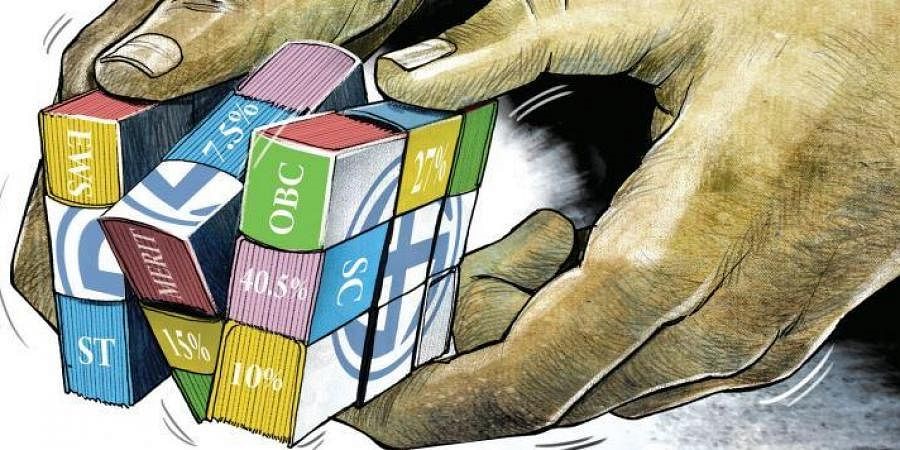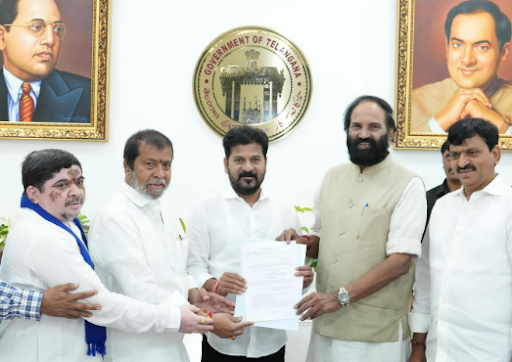Description

Copyright infringement not intended
Context: Odisha has initiated a survey of the Other Backward Classes (OBC) castes in the state.
Details
- The survey aims to collect socio-economic data on the OBC population and assess their educational and employment status.
- The Odisha government has constituted a commission headed by retired judge Raghunath Biswal to conduct the survey and submit a report within six months.
- The survey is expected to help the government in formulating policies and schemes for the welfare and empowerment of the OBC communities.
Background
- Caste is a social hierarchy that has existed in India for thousands of years. It affects various aspects of people's lives, such as their occupation, education, marriage and social status.
- Caste also influences the distribution of resources and opportunities among different groups of people.
- However, there is no reliable data on the exact population and socio-economic conditions of different castes in India.
- The last caste OBC census was conducted in 1931 by the British colonial government. Since then, only the Scheduled Castes (SCs) and Scheduled Tribes (STs), who are considered the most disadvantaged groups in the caste system, have been enumerated separately in the census.
Other Backward Classes (OBCs)
- The Other Backward Classes (OBCs), who are also eligible for reservation benefits in education and employment, have not been counted as a distinct category in the census.
- The OBCs comprise a diverse and heterogeneous group of castes that vary across regions and states.
- The Mandal Commission, which recommended 27% reservation for OBCs in 1990, estimated their population at 52% based on secondary sources.
- Many political parties, social movements and civil society groups have been demanding a caste-based census to provide accurate and updated information on the population and socio-economic status of different castes in India.

Objectives behind Caste Census
- Identifying the exact proportion of the OBC population and their sub-categories will enable a more rational and equitable distribution of reservation benefits among them.
- Revealing the extent of caste-based marginalisation, deprivation, discrimination and violence that affect various groups of people, especially the SCs, STs and OBCs.
- Designing more effective and targeted policies and programmes for the upliftment and empowerment of the backward and oppressed castes.
- Promoting social justice and equality by challenging the dominance and privilege of the upper castes in various spheres of society.
- Fostering a sense of identity and dignity among the lower castes by acknowledging their presence and contribution to the nation.
Significance of Caste Census
- A caste census will have implications for the political representation and mobilisation of different castes in India.
- It will provide a basis for revising the delimitation of constituencies and seats reserved for SCs and STs in Parliament and state assemblies.
- It will influence the formation of political alliances and coalitions based on caste interests and aspirations.
Challenges
- A caste census is not only a statistical exercise but also a social and political one. It will have far-reaching consequences for the structure and dynamics of Indian society. It will also pose many challenges and controversies.
- Defining and identifying the criteria for determining who belongs to which caste and sub-caste, which may vary across regions, states and communities.
- Ensuring the accuracy and reliability of the data collected, given the possibility of manipulation, falsification or concealment of caste identity by some individuals or groups for gaining benefits or avoiding stigma.
- Balancing the need for transparency and accountability in the data collection process with respect for privacy and confidentiality of individuals' caste identity.
- Dealing with the potential backlash and resistance from some sections of society, especially the upper castes, who may oppose or question the validity and necessity of a caste census.
- Addressing the ethical and moral issues involved in categorising and labelling people based on their birth-based identity, may reinforce or perpetuate caste stereotypes and prejudices.
Conclusion
- A caste census is a complex and sensitive issue that requires careful deliberation and consultation among various stakeholders, including the government, political parties, civil society groups, academics, experts and citizens. It also requires adequate preparation, planning and execution to ensure its feasibility, quality and utility
Must Read Articles:
Caste Census: https://iasgyan.in/daily-current-affairs/caste-based-census
|
PRACTICE QUESTION
Q. How important is it to conduct a caste census in India? What are the main challenges and benefits of such an exercise? How can the government and society ensure a fair and accurate representation of the diverse caste groups in the country?
|

https://epaper.thehindu.com/ccidist-ws/th/th_delhi/issues/34697/OPS/G65B6974I.1.png?cropFromPage=true















